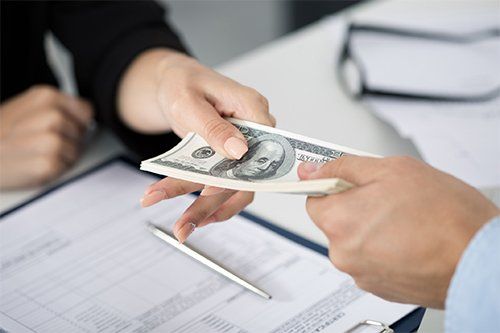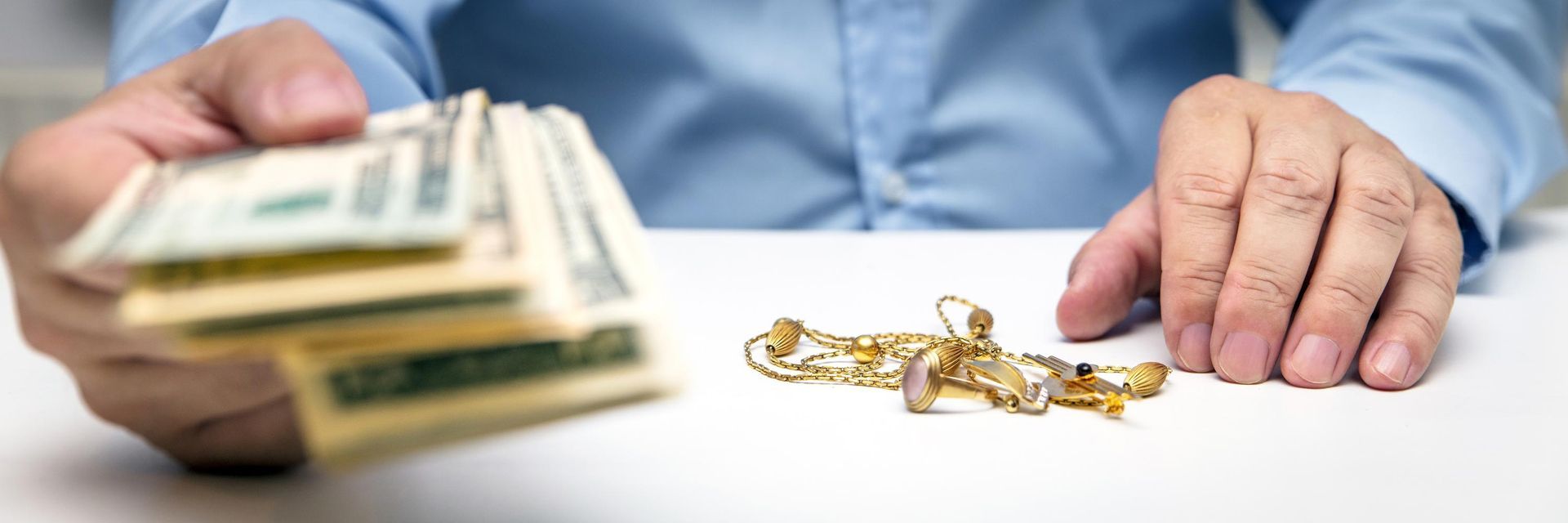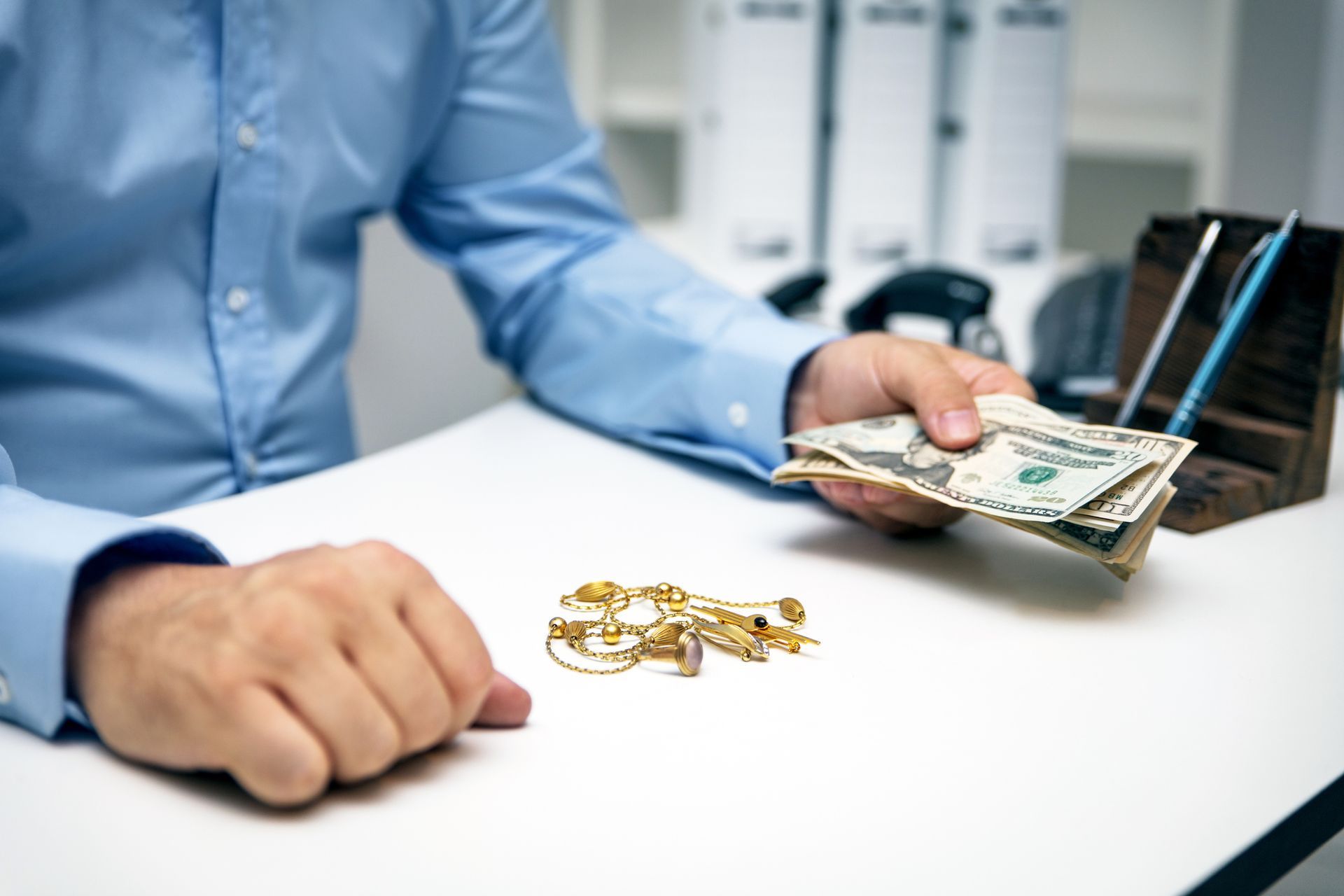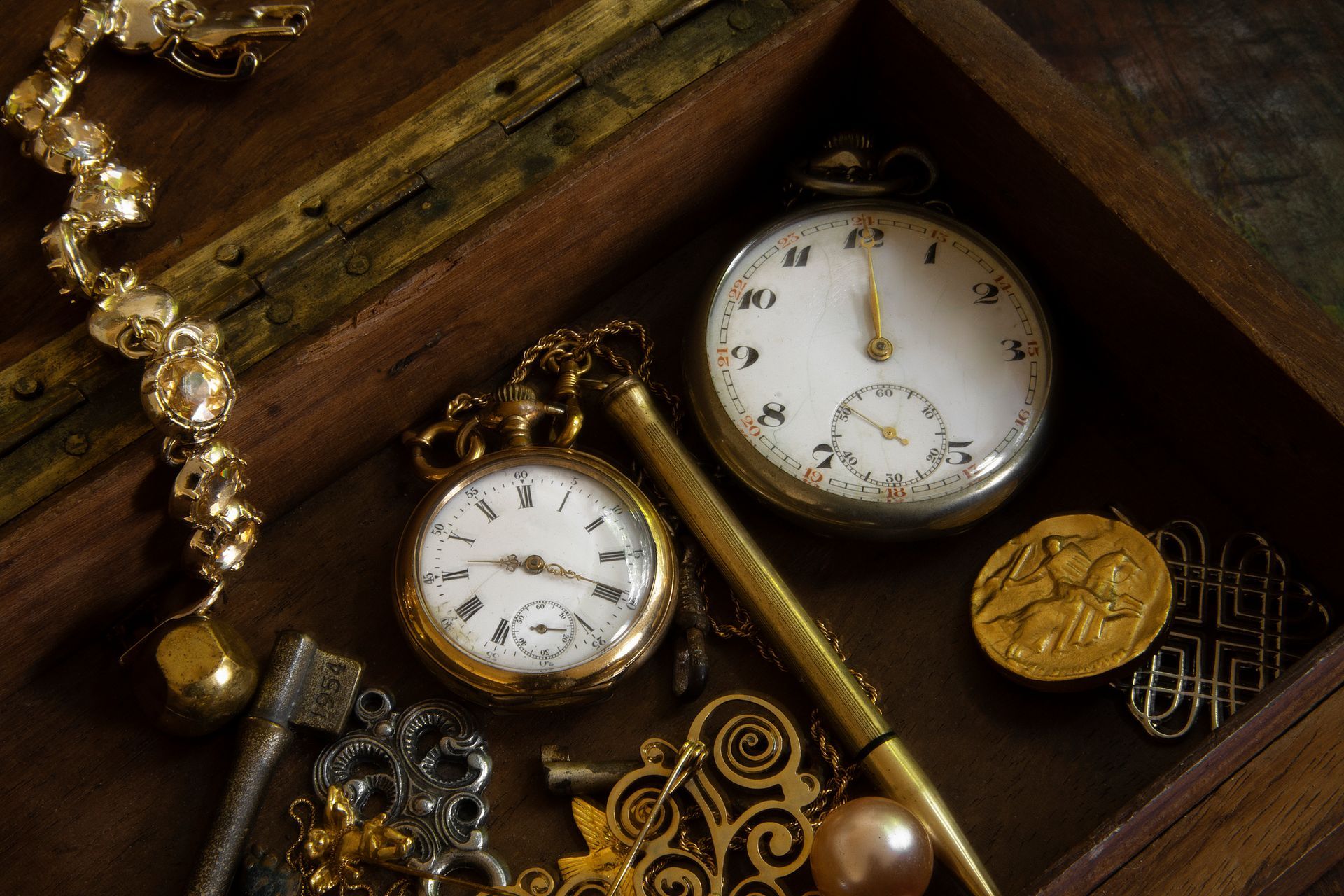Pawn Shop Dilemma: Sell Your Stuff or Get a Loan

When you head to the pawn shop with an item for which you want cash, you're faced with two main choices: do you want to sell the item outright, or do you want to get a loan on it? Which is the best choice? There's no one right answer because both options have pros and cons based on your particular situation.
To make the right decision for yourself, learn the benefits and drawbacks of both selling and pawning.
Sales
The most obvious advantage of selling an item to a pawn shop outright is the simplicity of the transaction. You walk in, negotiate a fair price with the shop employee or owner, and generally leave with cash in hand.
By selling outright, you save time and energy, not having to return to do anything further with the sale. This is ideal for something that you have no sentimental attachment to and have already determined to get rid of.
The downside to this easy sales process is that you completely give up ownership of the item at that moment. If you're not totally sure that you don't want something or you're making a rash move (such as after a breakup or divorce), this could get you in trouble. You also may not get the top price for the item because the pawn shop has to think about how much they can sell these goods to others.
Loans
What should you do if you're not fully committed to selling something? You can still get cash for it even if you're having second thoughts. Instead of selling and moving on, you can give the item as collateral and get a loan instead. The pawn shop would give you an agreed-upon amount of money and hold the item, which you can return and get back by paying back the loan within a certain time frame.
Pawn loans can help you test the waters if you're not sure if you really want to give something up. Rather than let the item languish in your home while you decide, you could give it to a pawn shop, stash the cash, and see how you feel with the item gone from your life. And if you do decide that you don't want whatever you pawned, you simply don't return to pick it up within the permitted time.
Opting for a loan instead of a sale may also net you more money. Why? The shop doesn't have to focus on the sales price they can get from others because they will get paid back by you in the form of the loan principal with interest. Since the goods are technically still in your ownership, things that appreciate will continue to appreciate even while you take a loan on them.
On the downside, though, you will need to be able to repay the loan within its terms. In return for the ability to get this quick cash and keep your stuff, you'll have to pay interest in the money. But you won't be subject to a credit check, so those with a bad credit history can still get the money they need.
The Right Decision
Understanding the pros and cons of each type of pawn transaction means you can decide the right course for you. Are you a busy person who just wants the simplicity of a sale? Or do you want to get rid of an item that has bad memories? Then a sale may be a good choice.
Do you, instead, just need temporary access to cash that you can repay quickly after a future transaction? Or are you thinking of downsizing? Then maybe you want a loan.
Whatever you decide, 2 J's Pawn & Gun can help. We buy and sell a variety of goods both large and small. Visit today to learn more.









